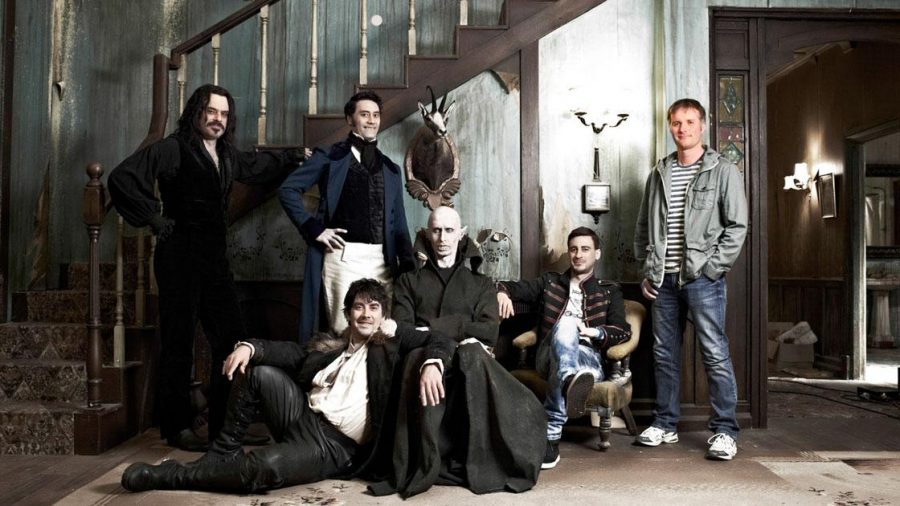By Anna Levitan
Staff Writer
On Sept. 16, video game review site GameSpot released a review by Carolyn Petit of highly awaited video game “Grand Theft Auto V”, which was released the next day, giving the game a nine out of 10.
Sept. 20: GameSpot’s Feedbackula, a video series that discusses reactions to games, gaming news, and their own articles, addresses the surprisingly furious reader comments on Petit’s review.
The score is “near perfect, in fact, as the number nine out of 10 kind of suggests,” said Johnny, the host of Feedbackula. “A lot of you, however, were absolutely furious.”
“A 9.0 out of 10.. GAMESPOT IS SH*T, Period,” commented one person under the username SkyDemonz360.
“There you go folks,” Johnny said. “GameSpot is a reeking pile of fecal matter because we gave a game people liked a nine, instead of a 10. Let’s all just think about that for a minute shall we, because on first glance, it seems kind of juvenile.”
Juvenile this behavior may be, but wherever opinions are posted on the internet, disproportionally angry comments shall follow. Rude comments have become a well-known internet phenomenon. Under the cover of anonymity, people simply seem unable to agree to disagree and even the simplest of opinions can lead to a massive fight, complete with swearing, name-calling, and even threats.
“No,” Johnny decided after taking a moment to think, “it still seems pretty f*cking juvenile.”
“Through the marvel of modern technology, anyone can post exactly what they are thinking on the internet at any time. The downside to this? Anyone can post exactly what they are thinking on the internet,” wrote an anonymous author on popular humor website Cracked.
Petit’s review triggered “personal attacks on Carolyn in the comments, and even a petition to get her fired for disrespecting Grand Theft Auto five, a game which, need I remind you, was given nine out of 10,” Johnny said.
“Fire Carolyn,” was all commenter squall_83 said.
“I’m not going to show any more comments like that in this episode,” Johnny said with a frown, “because to be honest, it’s not funny anymore. This stuff is repugnant, and it has no business being on GameSpot.”
But on both GameSpot and other sites, such comments can be found. Cracked articles will sometimes reference their own comment section in articles—and always negatively. Some people will warn their friends when they share articles on sensitive subjects: “Don’t read the comments.”
The question is, why do people so freely say things online that they would never say in real life? Anonymity is usually the answer.
“When cloaked by the anonymity still present on most commenting systems, people tend to act more antisocial then they might otherwise, their facelessness removing all of the negative implications of their actions,” said Cracked writer Chris Bucholz in his article “6 Reasons the Comments on This Article Will Be Useless.”
“Directing dark, scatological threats towards a local weatherman is cause for arrest when done in person. On the internet, it’s almost mundane,” he said.
But comment sections are not the only place on the internet such behavior can be found. People who take advantage of their anonymity exist everywhere. Another popular place to attack people over their opinions is the popular blogging website Tumblr.
As a blogging website, Tumblr is naturally used to express opinions and is set up so people can easily discuss said opinions with other people who may or may not agree. When everyone is civil, fascinating discussions can ensue. But not everyone remembers their manners.
Tumblr user adventuresofcomicbookgirl writes in-depth reviews of shows she watches, frequently examining them from a feminist perspective. Although many enjoy reading her posts, there are those who express their disagreement rudely, some even going as far as outright harassment.
“The fact is, I have no problem with disagreement,” wrote adventuresofcomicbookgirl in response to a recent bout of people attacking her for her opinions. “I have a problem with harassment. And making an entire blog titled ‘canustoptalking’ with the title ‘shut up’ qualifies.
“They are trying to get us to stop posting. To make us feel unsafe. And they aren’t even trying to hide that they’re silencing us,” she said. “I’m not leaving, though. I am never leaving… So you can stop trying. I’m not going to agree with you, and I’m not going to leave. You can’t shut me up.”
Some people do leave, though, unwilling or unable to put up with the harassment. And some people will be driven to do more than just leave a website. It is not rare to hear a pre-teen or teenager has committed suicide due to online harassment, or cyber-bullying.
As Johnny neatly summed it up, “attacking people personally because they don’t share your opinion is pretty low.”
“Looking at the amount of vitriol our community spewed this week, the fact I spent more than a year of my life making this show suddenly makes me feel distinctly uneasy,” Johnny confessed. “Because what if I’ve been directly contributing to this mess the whole time? What if the very user input I hate to see on this site has actually increased as a result of my work?”
“You know what, I don’t really want to see it happen anymore. I don’t want to sweep hate speech under the rug and pretend it didn’t happen anymore than I want to give it a platform from which it can be repeated,” Johnny said, “I don’t want to contribute to it anymore.”
“I’m not sure where this show is going in the future, if I’m honest, but I can tell you right now I don’t like the way our community currently treats the concept of the comment box.” Johnny sighed and said with a shrug, “I’ll see you next week, I suppose.”










